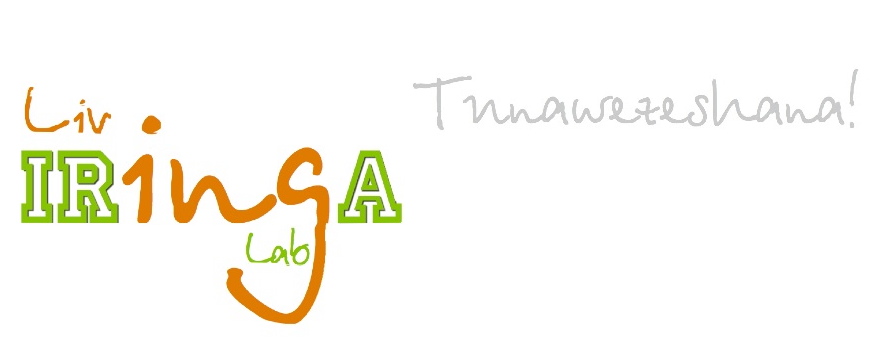The network of people empowering others has been growing in the past few weeks here at Iringa Living Lab. Last Friday we visited Kiwere village, 30 Kms from Iringa town towards Pawaga. The visit was a response to a request made to Iringa Living Lab by the Kalenga Division Officer, Mr. Adestino. The purpose of the visit was to share some of the latest local technologies in bee keeping. Not being a bee expert myself, I requested the new members of ILL from Mafinga who happen to have the expertise to go with me.
 |
| Visiting the field |
It was a full day’s event and there was a lot to share, from technical aspects of keeping bees to environmental issues and other entrepreneurial activities that could be integrated with bee keeping.
During the discussions that ensued and the field visit, it was clear that the clay beehives technology had not yet reached at Kiwere village. All beehives here are made from miombo trees. Of recent however there has been a challenge: the miombo trees are finished, so beekeepers have to travel long distances to look for them.
 |
| Beehives from miombo tree. These trees have been completely depleted in this area. These logs were bought from villages far away. Clay beehives can be a good alternative. |
The clay technology was therefore well received for a number of reasons. Apart from the fact that miombo trees have become scarce, farmers also noted that there’s clay in the neighbourhood so it will be easy to access the raw material. Secondly, the technology will be a way of increasing employment opportunities for those already engaged in pottery activities. Thirdly, one of the challenges they face is fires. Wooden beehives can completely burn in case of a fire, unlike clay beehives.
 |
Water is a big challenge in this village. This lady is collecting water from an open well, and she has to wait for longto fill her containers.
 |
This bore hole was vandalized by metal scrap sellers. Can another technology help? We're going to pursue alternatives as Iringa Living Lab. Will you join us?
|
|
As seen in the pictures, water is a big problem in this area. However, the borehole that the village was depending on was vandalised by some young men in the village who sell metal as scrap. We plan to discuss their problem with another local innovator who has invented a water pump that does not use a metal rod in the middle but instead uses a string. Will this solve their problem? Let's wait and see.
Many other issues were discussed among them the role played by beekeeping in conserving the environment. It was observed that bees thrive best where there are trees like avocado, mangoes, paw paws etc. It is therefore prudent to engage in fruit tree planting activities as a way of generating more income from fruits, from tree seedlings and from increased honey harvests. Participants resolved to pursue tree planting as another economic activity to supplement bee keeping.
 |
| Processing bee wax with solar energy |
We offered to help them type their constitution for the association and arrange it as the law requires. They also requested to join Iringa Living Lab, and who would stop them? By us going there, they’re already members anyway. If you have any ideas to share with our new members, welcome aboard!
 |
| Beehives for "smaller" bees are kept near home because their honey is so precious and sold at 30,000/= (about $19) per liter. |
 |
| Happy farmers showing us their honey processing equipment. Right is Mr. Adestino, Kalenga Division Officer. The two farmers are father and son. |









